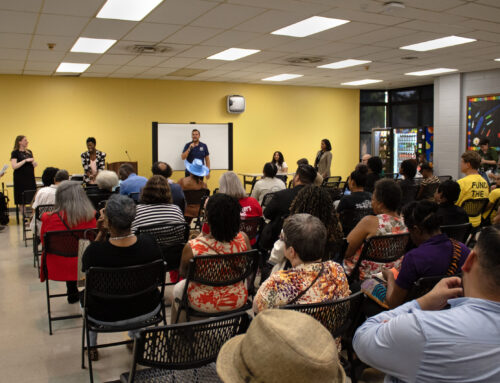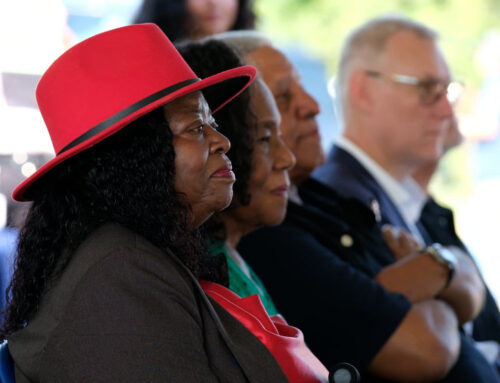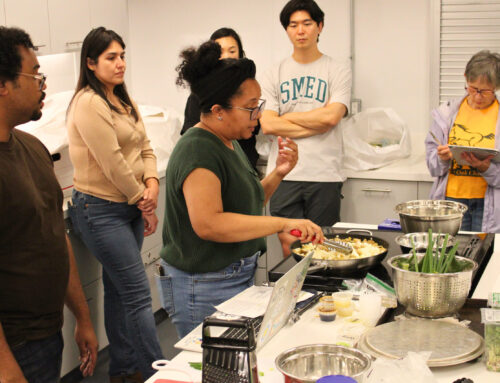New Civic Atlas tool makes Dallas zoning cases, building permits ‘just as easy to use as Zillow’
News Based on facts, either observed and verified directly by the reporter, or reported and verified from knowledgeable sources.
As plans for a 400-foot office tower on the edge of West Dallas wound their way through contentious community meetings and hard-to-follow public hearings, John Devine knew there was a better way.
“I saw there was an incredible amount of mistrust generated when people couldn’t keep track of when zoning cases were showing up on meeting agendas,” says Devine, 28.
It was spring 2021, and the COVID-19 pandemic had delayed Devine’s plans to pursue a master’s degree in urban planning at Massachusetts Institute of Technology (MIT). Stints at Trinity Park Conservancy, [bc]Workshop and the erstwhile CityDesign Studio had immersed the Dallas native in how local government processes work, and he wanted to make them work better.
During the lockdown, he learned to code “out of boredom” and realized a lot of problems in urban planning have a technical solution, so switched his study focus to public data transparency.
The culmination, three years later, is the Civic Atlas. It compiles City of Dallas zoning and building permit data and makes it “just as easy to use as Zillow, Airbnb or Google Maps,” Devine says.
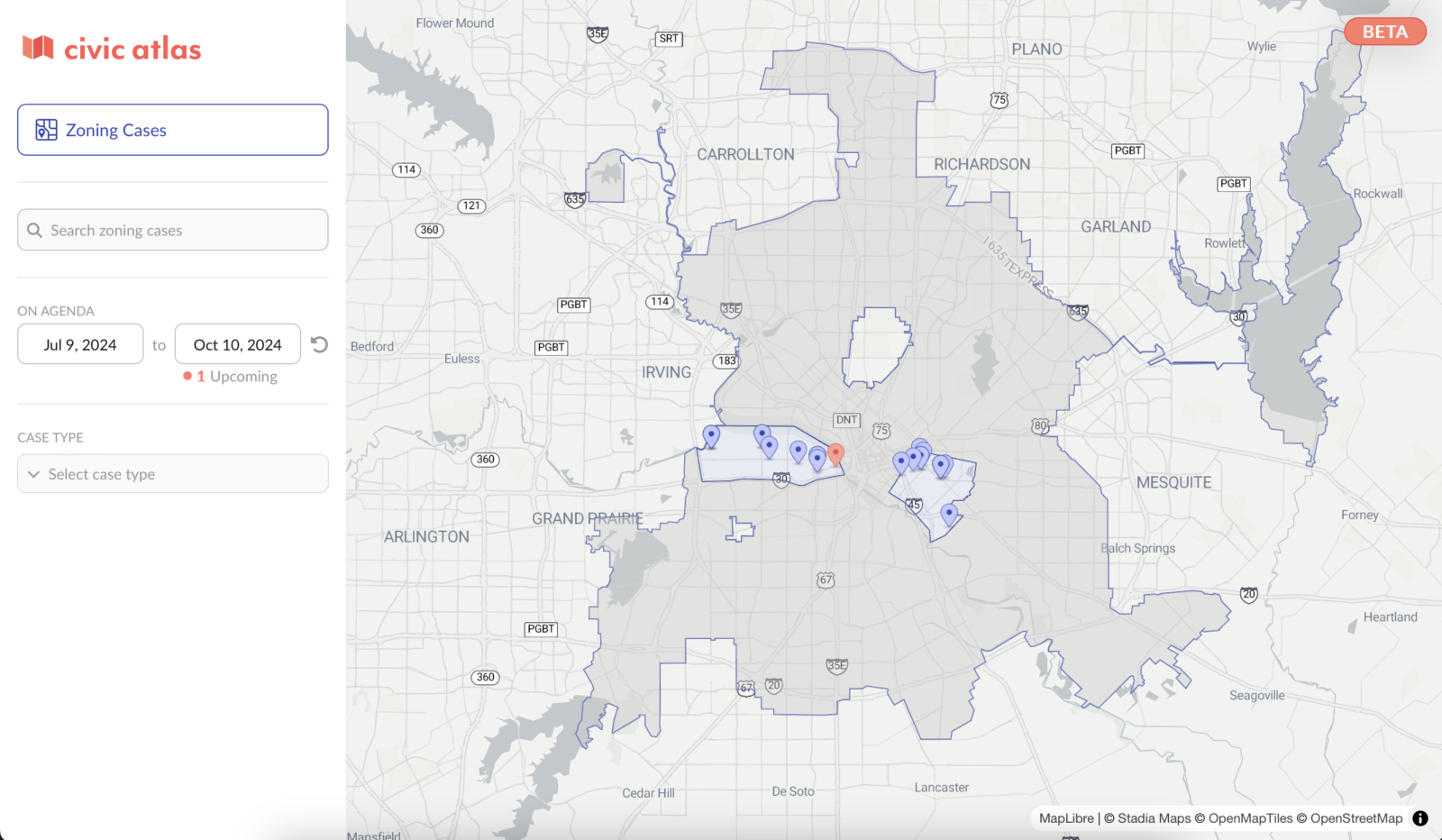
“City websites are mostly built for extremely well-informed technical professionals, and they look nothing like the websites people use in day-to-day life,” he says. “With new technology, you can make it just as easy to see what cities are doing as it is to check social media.”
Devine worked with Dallas Free Press in summer 2022 through MIT’s Priscilla King Gray Fellowship to build the technology. Through this partnership, he presented prototypes to neighbors in West Dallas, seeking feedback on whether and how the technology could be useful.
Having just spent nearly two years trying to follow and fight a zoning change that would allow for a 400-tower at the base of the Margaret Hunt Hill Bridge, West Dallas neighbors expressed excitement and relief at the prospect of a tool that would map and track zoning cases for them.
A preview of the Civic Atlas is now available through Dallas Free Press’ website, and will be free and available to everyone in Dallas around the end of October. Devine isn’t yet naming the funders who made the product possible but describes them as “local investors in the real estate sector who take community development seriously.”
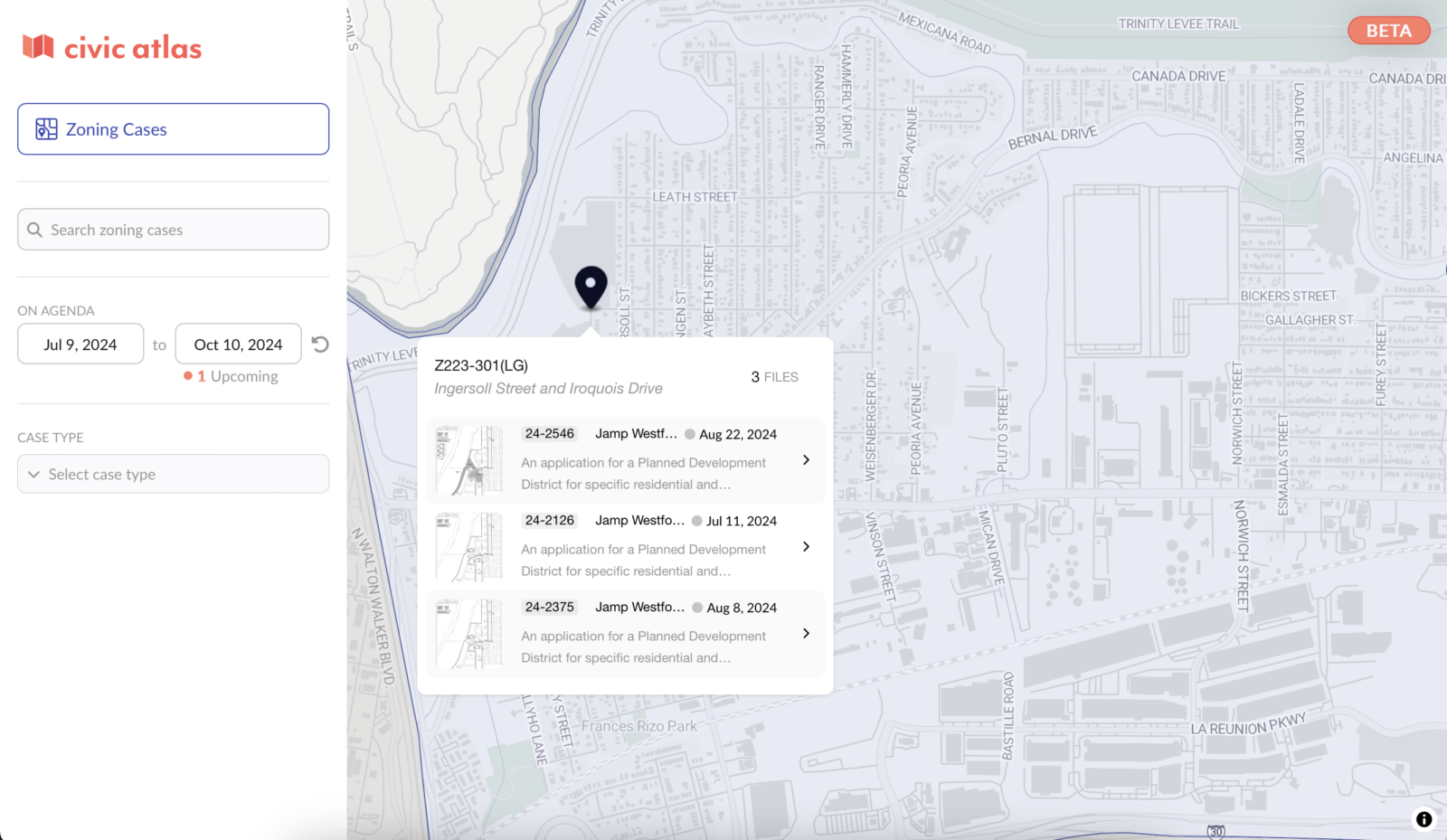
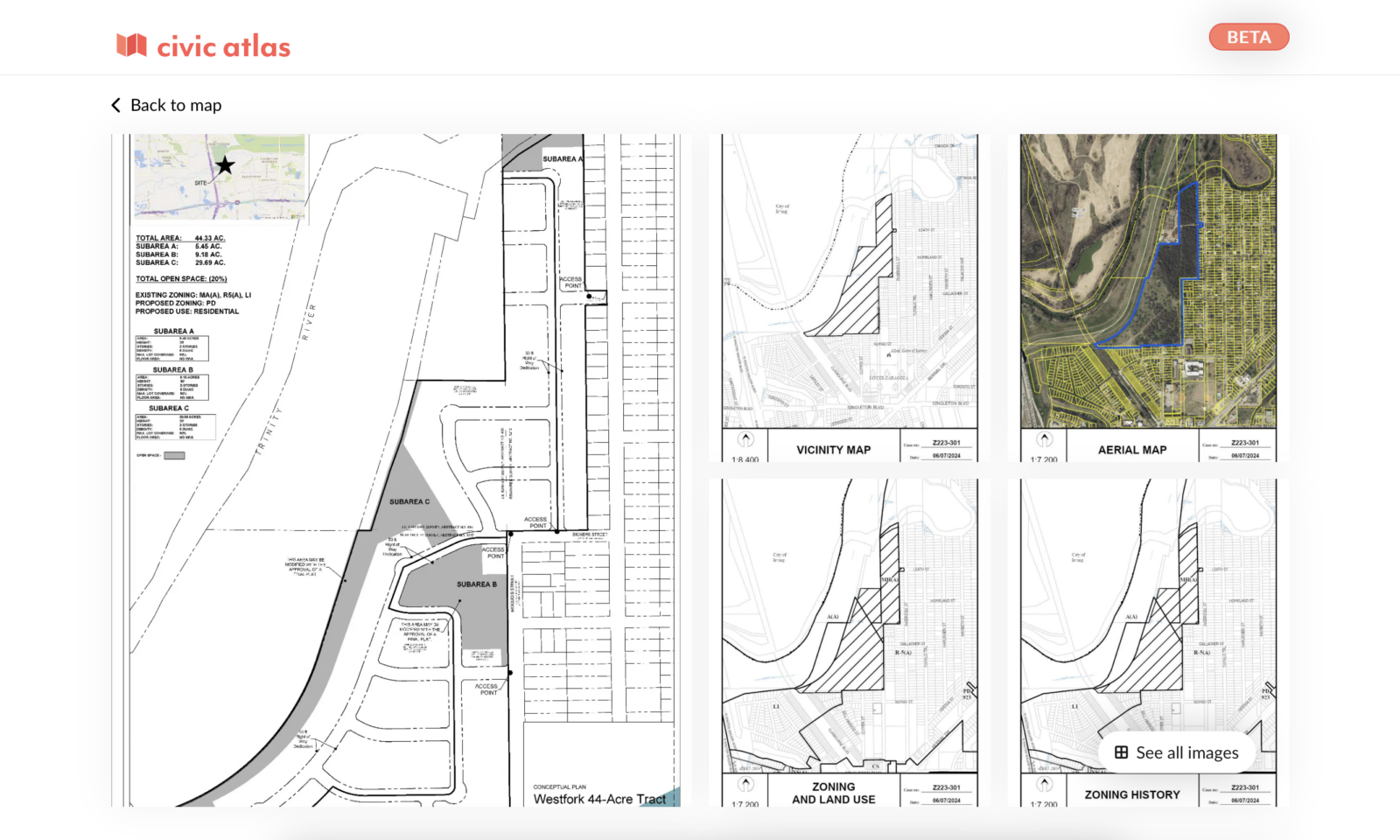

The goal is to “make local participation a lot easier and more accessible to a broad audience,” Devine says, and not just in Dallas.
“This is not a unique dysfunctional thing about Dallas; it’s the status quo,” he says.
He explains that in the early 2000s, most cities across the country switched from solely paper documentation to scanning those documents and putting digital versions on the internet.
During Devine’s high school days as a [bc]Workshop intern, he spent his Monday afternoons volunteering on a project called the “Public Agenda,” manually compiling and mapping Dallas meeting agendas and public records. Back then it wasn’t financially viable, he says, but now he can use AI to cut down the work by 90%.
“New technology isn’t perfect yet, but a lot of things can be automated today,” Devine says. “We might be able to realize a lot of the goals of civic tech that just weren’t sustainable 10 years ago.”
Similarly, he says, cities didn’t have time or resources to develop plans for digitizing public information and became reliant on technology vendors to do this work. His MIT master’s thesis profiles five of these large companies, most worth hundreds of millions or even billions. Because they are government vendors, Devine says, “they focus more on procurement than product development and user experience.”
“A lot of these vendors design software that works well internally,” he says, “but doesn’t provide a great experience for members of the public trying to get to information.”
Fairfax County, Va., uses one of these vendors, Accela, but recently hired Devine to use the Civic Atlas to analyze and report raw permit data for county staff. Fort Worth uses Accela, and the City of Dallas recently approved a $5.7 million contract with Accela and will begin using it in April.

Adding building permits to the projects was a “surprising development,” he says, once he learned from his experience in Fairfax County that the same methods could be applied to permits as zoning data.
“Together they tell the story of development, and it’s incomplete if you have one but not the other.”
Devine hopes to retool the Civic Atlas tool for cities and counties across the country, and is looking to learn from Dallasites how the tool is useful and what else residents need.
“The biggest thing I want to see is more constructive conversation between builders and community members,” Devine says. “I don’t want people to come in believing things are willfully hidden from them; I want them to come in with the same set of facts and have a single source of truth.”
Share This Story, Choose Your Platform!
Keri Mitchell has spent 20+ years as a community journalist, including 15 years dedicated to community and civic journalism at Dallas’ Advocate magazines. She launched Dallas Free Press in early 2020 with the belief that all neighborhoods deserve reporting and storytelling that values their community and holds leaders accountable.
Mitchell says she is energized by “knowing our work is making an impact — listening to people, telling their stories with strong narratives paired with compelling data that leads to change. I also love spending time in our neighborhoods and with our neighbors, learning from them and working to determine how journalism can be part of the solution to their challenges.”
Mitchell is proud to be the winner of multiple awards during her journalism career including: Finalist in Magazine Feature Reporting (2018) and Finalist in Magazine Investigative Reporting (2017) from Hugh Aynesworth Excellence in Journalism, Best Feature Story (2011) from Texas Community Newspaper Association and Best Magazine Feature (2011) from Dallas Bar Association Philbin Awards.
Areas of Expertise:
local government, education, civic issues, investigative and enterprise reporting
Location Expertise:
Dallas, Texas
Official Title:
Founder + executive director
Email Address:
keri@dallasfreepress.com

